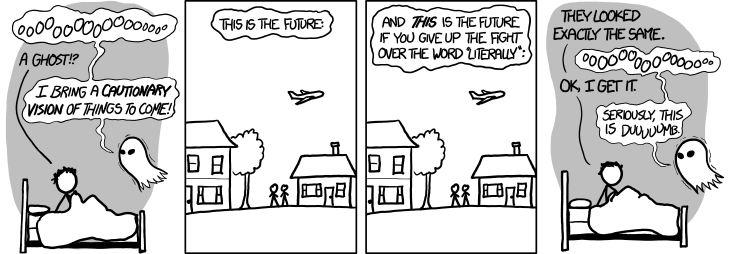I realize that it is not customary to begin a review with an explanation of why you perhaps shouldn't be writing it. Nevertheless, the point of a review is to evaluate a book for potential readers, and doing so honestly is obligatory. I wouldn't feel I had fulfilled that obligation unless I stated frankly from the outset that I may not be able to evaluate this book objectively.
In one sense, nobody can do that -- everybody has a position on these topics these days -- but the pertinent reason is that I'm in this book. Matthew Vines refers to Stephen Long's blog, Sacred Tension (a fairly well-known blog in the gay Christian mesocosm*), and specifically to the post Falling In Love. It so happens that I am "Andrew."** I hasten to add that Stephen's portrait of our relationship is true (though I think it rather more generous and gentle towards me than I deserve), and also that I don't think that Mr. Vines has misrepresented it, though it feels odd to read about it "out of context," as it were -- but that's inevitable.
I don't believe that this has adversely affected my ability to judge the book; if I did, I'd probably have sent the advance copy back with an apology. But I would feel less than fully honest if I withheld this information from my own readers, so that they can come to their own conclusions about whether I've judged Mr. Vines' work fairly, and why or why not.
This review will of necessity be woefully incomplete. I hadn't read more than halfway through God and the Gay Christian before I became convinced that the only really adequate review of its contents would be a book in itself. I haven't written that book, and have cut out a lot of things I would have liked to put into this review for the sake of brevity; but the brute fact is that the questions Vines raises here are vital ones, not only for life as a homosexually attracted believer, but for a Christian perspective on sexuality in general. That is a sizable topic even in its own right, and when we consider its implications for the Church's ability to evangelize the world, it becomes colossal.
The book is coming out on May 6 of this year, via Convergent Books, and will (I gather) be available both in bookstores and online.
UPDATE: The book has actually been available since April 22nd. Derp.
The Strong Points
I haven't watched the hour-long video that Matthew Vines released a couple of years ago on this same subject, but it went viral, and I think I can see why. His writing is highly accessible, and he makes his points with concision. He writes confidently, but without rancor -- a welcome change of tone in this debate, in which both sides are very much to blame for the mutual bitterness and resent that frequently animates gay-Christian dialogue -- and his power to do that is fairly remarkable, considering the difficulties that every gay believer tends to find himself in, both interior and exterior.
More than that, Vines' devotion, and particularly his passion for evangelism, shines through in this book. He strives to be faithful to the Scriptures, when it would have been far easier to simply dismiss them as incorrect or irrelevant, on this topic at the least (nor would he have been unable to find churches that would support him). I think his refusal to discard the Bible in that way laudable. And he pinpoints one of the basic problems with the approach to this topic that conservative Christians all too characteristically take, in the opening paragraph of chapter seven:
I am far from the only gay Christian who has heard the claim that gay people will not inherit the kingdom of God. That message is plastered on protest signs at gay-pride parades. It is shouted by roaming street preachers at busy intersections and on college campuses. The result is that, for many lesbian, gay, bisexual, and transgender people, all they have heard about the kingdom of God is that they won't be in it.***
I admit I fundamentally disagree with his solution, so to speak, but his statement of the problem is exact -- and, to a well-formed Christian conscience, should be shaming.
His analysis of the story of Sodom, one of the most famous of the "clobber passages," is also more or less sound; and the distinction he draws between lustful indulgence and authentic relationships between people of the same sex, while I don't think it goes as far as he thinks it does, is nevertheless an important one.
He also raises an extremely important point in chapter 9 in his discussion of the image of God: that gay sexuality can't be reduced to the desire for gay sex, and that to do so is destructive. I've read a lot of traditionally-minded Christians either claiming, or seeming to claim, that a homosexual person's sexuality as a whole is misdirected, not just the specific desire for sexual union with another man or another woman. But sexuality is more than simply sexual desire; Vines rightly says that it involves our capacity for relationship in general (consciously or unconsciously echoing the Catechism in paragraphs 2331 and 2332), and the Church does not and should not condemn a person's entire sexuality in that way. And that realization has to be part of a life-giving, Christian view of sexuality, whether it approves of gay sex or not.
The Weak Points
Nevertheless, Vines' argument in general is seriously unsound, in three basic ways: incomplete information, unsubstantiated assumptions, and invalid reasoning.
I do not suggest that this is an effect of deliberate distortion or deceit on his part. That would be an exceedingly serious charge to level at anybody, let alone a fellow Christian, and one whose experience I can sympathize with a great deal: I'm a gay believer too, after all, and I was raised in the Reformed tradition from which he hails. I am here dealing strictly in the things he says. I propose to take him at his word when he asserts that he says them because he thinks they are true -- and I have deep respect for that.
Still, the argument is gravely faulty. To begin with, almost his entire argument is characterized by two serious fallacies: first, that modern understandings (notably of sexual orientation and gender relations) are correct simply because they are modern -- the mistake of "chronological snobbery"; and second, that the doctrine of gender complementarity means nothing more than anatomical compatibility.
Taking his treatment of gender as our example, the only attempt Vines makes to demonstrate that an ancient approach to it is wrong is to appeal to the fact that most Christians today (that is, most American Christians) don't believe it. It's quite true that the language of Scripture was affected by the culture it was written in -- but then, so are our own ideas about gender. He gives no reason to trust the ideas about gender that are popular in our day rather than the ones that were popular back then. And the same lack of a critical approach to our own era's thinking comes up again and again. In principle, a case could surely be made for the characteristic contemporary view. But Vines doesn't in fact make a case for it; it operates simply as a consistent assumption. (The closest he comes is in an extremely disputable exegesis of Galatians 3.28, where he takes the statement that "in Christ there is neither male nor female" to be a criticism of patriarchy as such -- but he does not provide anything like adequate evidence to back this up.)
Similarly, a great deal of his interpretation of both Leviticus and the New Testament relies on the notion that the perceived feminization of men who were the passive partners in anal intercourse was considered disgraceful, and those who inflicted it were disgraced for doing so -- which is quite true, but which he explains solely in terms of the rampant misogyny of the time, without considering the possibility that, for the authors of Scripture at least, sexual complementarity might have played a role as well. The idea that, misogyny aside, there might nevertheless be some kind of disgrace in treating a man like a woman or vice versa is never even raised, let alone refuted. He rightly distinguishes between a belief in complementarity and a misogynistic outlook, but fails to consider whether there is anything more to complementarity than human anatomy -- whether gender is also a spiritual fact, and not exclusively a physical and psychological fact -- which might have a profound effect upon our view of gender relations: which, in the traditional view and especially in the Catholic view (as articulated in Theology of the Body), does have precisely a determinant role in sexual ethics.
Vines' data on the stability of sexual orientation is incomplete and poorly interpreted. He takes the collapse of the ex-gay movement, in addition to the testimony of the APA et al. that reorientation therapies don't work, as more or less conclusive proof that sexual orientation is fixed, a premise on which a great deal of his argument is constructed. But this does not follow; sexual fluidity is equally well known to the APA, and the fact that something cannot be changed by trying to make it change, doesn't mean that it is immutable -- for the same reason that pulling on the top of a sapling won't make it grow faster, yet that does not prove that saplings don't grow.
One of the largest and most basic problems, though, can be stated in relation to the following passage:
Mandatory celibacy for gay Christians differs from any other kind of Christian self-denial, including voluntary celibacy for some straight Christians. ... For straight Christians, abstinence outside marriage affirms the goodness both of marriage and of sex within marriage. But for gay Christians, mandatory celibacy affirms something different: the sinfulness of every possible expression of their sexuality. ... Functionally, it is castration. Such an absolute rejection of one's sexuality might make sense if one's sexual desires were oriented exclusively toward abusive or lustful practices. It makes considerably less sense when at least some of one's desires are oriented toward a covenantal relationship of mutual love ...****
I won't listen to those who claim that all homosexual practice is degraded, an assertion that is demonstrably false -- one has only to look at loving gay couples to know that. But when once we admit that, yes, some people may be called through no choice of their own, yet by the nature of their sexual desires, to abstain totally from those desires, then we must logically admit that the doctrine that homosexual sex is intrinsically wrong still makes sense even in the context of a modern approach to sexual orientation.
The traditional doctrine might, of course, be false, even if it does make sense. But that must be proven or disproven on other grounds; the grounds of the suffering it causes are defined to be irrelevant to its truth or falsity by the nature of the argument. For someone whose desires are oriented toward something that Christians en masse agree is wrong for one reason or another -- say, polygamy, or pedophilia, or objectum sexuality***** -- is apt to experience the same trials of frustration, loneliness, and misunderstanding that afflict a queer experience. If we can dismiss the traditional doctrine of homosexuality as unwholesome on the grounds of these sufferings, then they are equally valid reasons to dismiss them for other cases; but if suffering is not an adequate reason by itself to dismantle those doctrines, then it isn't relevant to this discussion either.
I don't say this out of any insensitivity to what I'm proposing. I am all too keenly aware of the cost of this particular discipleship. It's true that going without sex, in itself, is not the agony or even the inconvenience that many people suppose, and it's also true that some people don't find celibacy much of a cross to bear. But some of us do, and it is those who find it a torment (whether from within or from without) who are, as it were, at stake here. The scorched earth style of what some churches are pleased to call their fellowship, and the "put up and shut up" attitude evinced by many Christians, are grossly inappropriate, and deserve frank and unequivocal condemnation as being utterly unchristlike whenever they manifest themselves; and I myself have endured the way of this cross, and fallen not only on my knees but on my face under its weight; even now I am daily crucified upon the absence of the man that I love.
But I love the truth too. I often stray, but altering the path I'm walking on is another matter, and I can't do that over thorns and stones, however savage. The presence of such things is not a sign that this is not what God has for us: the Cross and the lives of the saints teach us that. They were stoned; they were sawn asunder, were tempted, were slain with the sword: they wandered about in sheepskins and goatskins; being destitute, afflicted, tormented (of whom the world was not worthy).
I don't for one moment suppose that Vines himself would do anything else, if he were once convinced that this were God's will. He is in fact convinced that God's will is something else, and no one should presume to cast doubt on his motives when the only thing he's done is disagree with a particular traditional doctrine. But the plain fact is, when rigorously analyzed, his case just isn't adequate: it is riddled with faulty reasoning, unquestioned assumptions, and incomplete data, and these things are of the very stuff of his necessary premises and most important steps of argument.
Is It Worth Reading?
It depends on why you're reading it. If you are looking for a sound historical, linguistic, logical, and Biblical study, I would have to say no. His training isn't sufficient in these areas (though I'd be quite pleased to see what he did with it if it were -- what, perhaps, he will do with it some day in the future when it is?), and the sources he relies upon appear in many cases to be either incomplete or tendentious.
However, if what you're looking for is a readable work that does express many of the exemplary contemporary arguments for a gay-affirming interpretation of Scripture, I think this is a very important book indeed, and one that will probably have a widespread and lasting influence. I am of the opinion that Vines has given gravely wrong answers to the questions that he has raised, but he has raised exactly the right questions: addressing matters that are both important in themselves and very much on the minds and hearts of the rising generation, gay and straight, and even Christian and non-Christian. Any coherent, thorough articulation of traditional Christian beliefs about homosexuality is going to have to go a lot further than "God made Adam and Eve, not Adam and Steve" -- further even than, "Look, read this Christopher West book" -- and it's going to have to do so in a way that addresses the same issues that God and the Gay Christian addresses, and with just as much clarity and appeal.
**Naturally I obtained his permission before revealing what he chose to keep private when he wrote the relevant post. We agreed that, insofar as it is our story, we may both tell it.
***Chapter 7, "Will Gay People Inherit the Kingdom of God?", p. 119. Page numbers in the published edition may not correspond exactly.
****Chapter 1, "A Tree And Its Fruit", pp. 18-19, emphasis mine.
*****I have deliberately chosen examples that are, in my judgment, dissimilar from both homosexuality and one another for this line of argument. This is partly because I think a diverse set of examples strengthens the argument.
It is also partly in the forlorn hope of quelling the firestorm that will probably arise from having brought up pedophilia: pro-gay people furiously denouncing me for implying that they are the same, and and anti-gay people just as furiously agreeing with me that they are the same; when in fact I do not think that they are the same at all and, having been the victim of someone else's pedophilia on the one hand, and being gay myself on the other hand, am outraged at the conflation of the two.
If you're unfamiliar with objectum sexuality and, reasonably enough, scared to google it, you can read a rational treatment of the subject here, and an inappropriate and hilarious treatment here.





